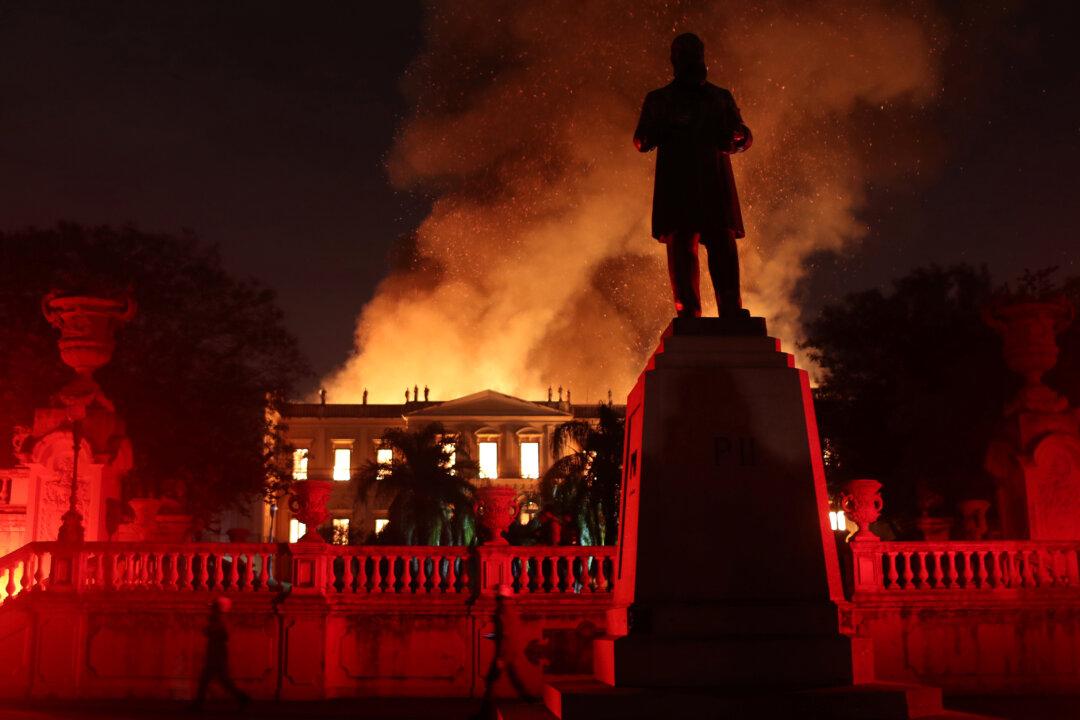RIO DE JANEIRO—Firefighters combing through the charred remains of Brazil’s National Museum have found a skull that may belong to its star exhibit, an 11,500-year-old woman named Luzia, local TV reported on Sept. 4.
A fire broke out in the 200-year-old museum on Sept. 2 evening, destroying the vast majority of its massive collection and igniting a nationwide debate over the role of culture and learning in a society grappling with a frail economy and deep austerity measures.





